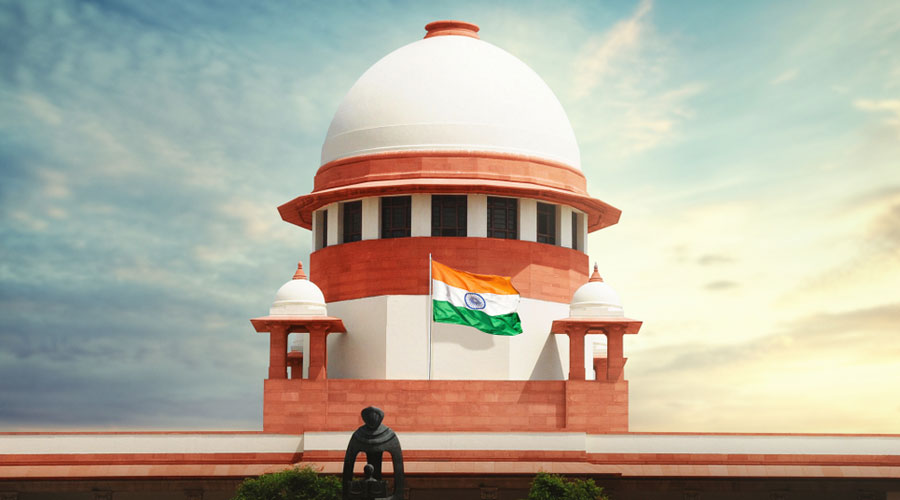The Supreme Court on Wednesday asked the Centre why security clearance had been denied to Malayalam news channel MediaOne and why those reasons cannot be disclosed to the media house, pointing out that the government “cannot straightaway deny” such information.
The top court said the essence of court proceedings was that anything relied upon by one party should be disclosed to the opposite party.
A bench of Justices D.Y. Chandrachud and Hima Kohli told additional solicitor-general K.M. Nataraj, appearing for the Centre, that even in cases of detention under the National Security Act, the authorities had to furnish grounds, but in this case it was only said that the ministry of home affairs had denied security clearance.
“The authority granting the broadcast licence is different from the authority revoking the licence on the ground of security. It is a third party. Then what is the remedy for the citizen, who is denied the permission...? You are not saying they are the offenders but are revoking their licence,” the Supreme Court said.
The court was hearing the news channel’s plea against a Kerala High Court order upholding the Centre’s decision to ban MediaOne telecast on security grounds.
The apex court bench said that in a criminal case, a chargesheet was filed against the accused, and no matter how sensitive the charges were, they were disclosed to the accused, but MediaOne had been denied information.
“We understand there are sources which cannot be disclosed, but then you can provide a redacted copy of the materials. You can’t straightaway deny the other party information on which you are arriving at a conclusion,” the bench said.
It added that guidelines say national security and public order will be grounds for denial of permission to renew broadcast licence, but MediaOne needs to know what rules it had breached.
“Renewal of licence is important for a media house because there is investment involved, market reputation (is) at risk, people have been employed. In this case, they have been running for the past 10 years, so goodwill in the market is also there,” the bench said.
In a nearly four-hour hearing, the court asked Nataraj to seek instructions on these queries and come prepared on Thursday.
At the outset, senior advocate Dushyant Dave, appearing for the channel, said it had never violated the programme code but the only crime was that MediaOne was owned by people of a minority community.
He said the lack of security clearance from the Union home ministry could not be grounds to not renew the licence if the channel was fulfilling the conditions under the Cable Television Networks (Regulation) Act, 1995.
“The fundamental right to freedom of speech and expression, which includes press freedom, can be restricted only on the grounds enumerated under Article 19 (2),” Dave said.
Article 19(2) permits the government to impose reasonable restrictions on the freedom of speech and expression “in the interests of public order”.
Senior advocate Huzefa Ahmadi, appearing for the chief editor of the channel, said the government had said before the high court that MediaOne was a threat to national security and public order.
“When you (Centre) pass the final order you don’t tell me that I have violated national security or public order. You merely say that I have violated security clearance,” he said.
The Supreme Court said there should be tangible material to show that the channel was impinging upon national security if clearance had been revoked on the grounds of national security and public order.
Ahmadi said: “If they are saying something sensitive then they may redact that part, but at least they can provide me a gist of how the channel has breached the conditions.”










